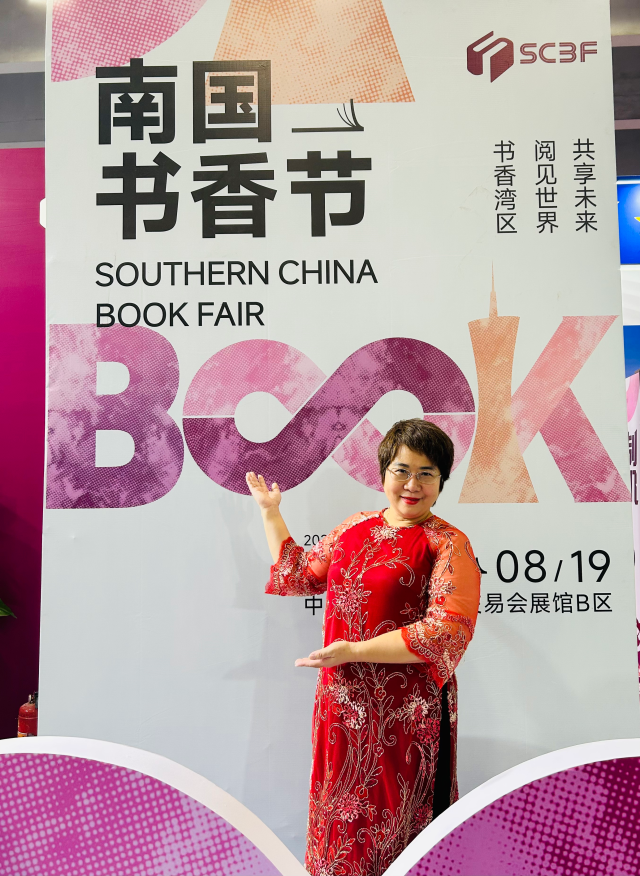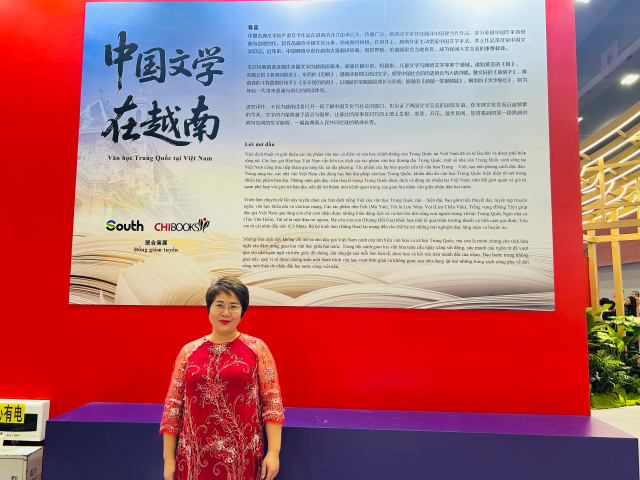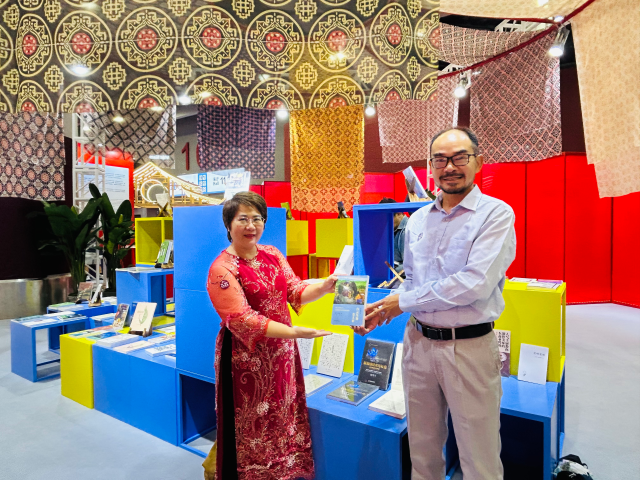At the Vietnam pavilion of the 2025 Southern China Book Fair stands Ms. Nguyen Le Chi, curator of the exhibition "A Decade of Chinese Literature in Vietnam" and founder of Chibooks — Vietnam's pioneering publishing agency — embodying the quiet power of stories to connect cultures.

Coming to Guangdong for a book exhibition for the first time, Nguyen Le Chi regards Guangdong as an important gateway for Vietnamese literature to reach a larger audience in China and beyond to readers of other nationalities.
Why Guangzhou? The unspoken similarity
When asked why she chose Guangzhou over Beijing or Shanghai for this decade-spanning retrospective, Nguyen's answer reveals a deeper cultural proximity: "Guangzhou and Ho Chi Minh City share similar cultural DNAs — from cuisine and weather to commerce. Yet books rarely crossed this bridge. I wish to change that and bring about more exchange in books between the two sides."

Nguyen Le Chi also highlighted Guangdong's role as a gateway for China-ASEAN literary exchange. Her observation underscores a key advantage for Guangdong: its historical and cultural proximity to Southeast Asia creates fertile ground for literary exchange. Guangzhou's "porous, inclusive culture," as Nguyen describes it, allows audiences to embrace foreign narratives organically.
Guangzhou as a springboard for Vietnamese literature
Nguyen views Guangzhou as an integrated cultural convergence point: “People from many countries come here, so Guangzhou incorporates much of the foreign cultures, making it tolerant and diverse, its people more prone to accepting different cultures and empathizing more easily with foreign literature.”
With Guangdong as the hub, Nguyen envisions a cultural exchange that reaches even beyond Guangdong itself: "Books published here reach not just Chinese readers but global visitors. Through Guangzhou, Vietnamese literature can possibly radiate outward, shining in more countries."

Her planned future collaborations with Guangdong publishers aim to introduce contemporary works featuring Lingnan culture, especially its famous cuisine and food culture. Cooperation will be conducted with Guangdong publishing agencies, including Flower City Publishing House, Guangdong Science & Technology Press, and more, with two books already secured for introduction to Vietnam during the book fair.
Additionally, Nguyen expressed a desire to bring Vietnamese authors to Guangdong's "Author Village" for literature exchanges and to hold author-reader exchange activities with Guangdong authors and readers.
The human core: choosing stories that resonate
While Vietnamese readers have long cherished Chinese classics (Dream of the Red Chamber, Journey to the West, and more), Nguyen spearheaded the contemporary shift, including works by Yu Hua, Liu Zhenyun, and female writers like Hong Ying, who dissect social transformation, offering "windows into the real China"; and children's books by authors like Cao Wenxuan, whose stories "teach without preaching."
Nguyen's curation philosophy transcends borders or literary fame. For her, universality lies in shared human struggles and the hopes that will always exist in life. "I choose works where Vietnamese readers can see themselves. Like Dong Xi's Tampering Life — its themes of ordinary people battling circumstances mirror the lives of people in Vietnam. My own uncle faced similar trials just as those in the book."
"That was when I marveled at the fact that I, as a foreigner, was also able to empathize deeply with a book by a Chinese author." Nguyen said that was why she is dedicated to introducing contemporary Chinese literature into Vietnam — shared human nature and struggles move people, despite their different nationalities.
This focus on "common human nature" explains her balanced catalog: from Nobel laureate Mo Yan (whose rights she secured even before his global fame) to gritty regional writers. When asked whether regional Chinese literature (e.g., Guangxi or Guangdong authors) resonates more strongly in Vietnam, she resists simplification: "It's never only about the writer's origin. A powerful story set in Gaomi [Mo Yan's fictional town] or Guangzhou can equally move us — if it captures the true circumstances in common people's lives."
The bigger picture: culture as a steady bridge
Nguyen Le Chi believes that literature offers an enduring connection. Her closing wish mirrors Guangdong's cultural ambition: "Let this book festival ignite even more exchanges between Guangdong (GBA) and Vietnam — film, art, publishing, and more. True understanding starts when cultures flow both ways."
Reporter | Guo Chuhua
Photo | Nguyen Le Chi
Editor | Hu Nan, James Campion, Shen He






